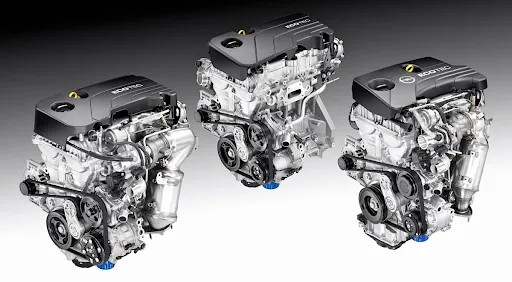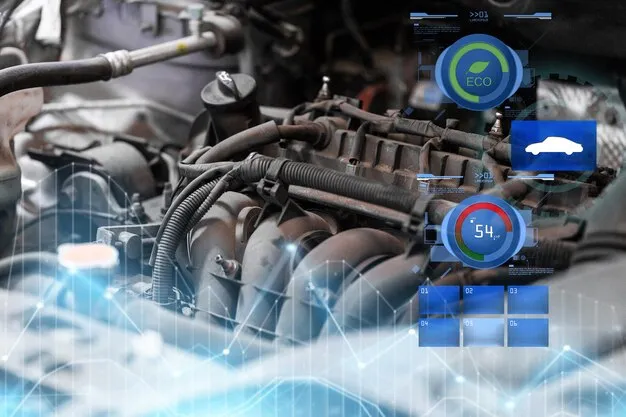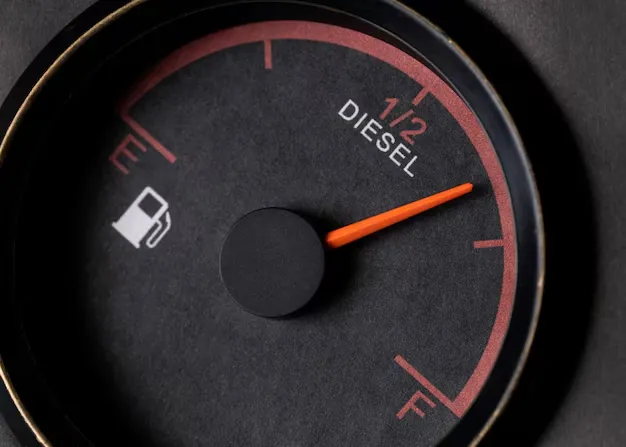Mon - Fri: 8am - 5pm, Sat - Sun: Closed

6-36 Month Warranties
We Ship Local.
Hablamos Español.
Connect with
Environmental Impact of Diesel Engines
Diesel Engine Environmental Impact
Diesel Emissions and Air Quality
Diesel engines have long been favored for their fuel efficiency and power, but they also produce higher levels of pollutants, such as nitrogen oxides (NOx) and particulate matter, compared to gasoline engines. These emissions contribute to air quality issues and can have adverse health effects, particularly in urban environments.
Recent advancements in clean diesel technology, like diesel particulate filters (DPF) and selective catalytic reduction (SCR), have made newer diesel engines significantly cleaner. These innovations effectively reduce harmful emissions, enabling diesel engines to meet strict environmental regulations. With proper maintenance and the use of modern technologies, today’s diesel engines provide powerful performance while minimizing their environmental impact, making them more eco-friendly than before.



A major advancement in recent years is the use of Selective Catalytic Reduction (SCR) technology, which can reduce NOx emissions by up to 90%. This innovation marks a significant step in the evolution of diesel engines, addressing environmental concerns by drastically lowering harmful emissions. SCR technology reflects the industry’s shift toward cleaner, more sustainable vehicle options, ensuring that diesel engines meet stricter emissions standards while maintaining their powerful performance. This progress highlights how diesel engines are adapting to modern environmental demands.
Fuel Efficiency Advantages

One environmental benefit of diesel engines is their superior fuel efficiency. Diesel engines generally consume less fuel per mile than gasoline engines, leading to a reduction in overall carbon emissions. This makes diesel a preferred choice for heavy-duty vehicles and commercial fleets, where less frequent refueling translates to lower carbon output over time. By burning less fuel, diesel engines help reduce the environmental impact associated with transportation.
Additionally, improved fuel economy contributes to overall energy savings, making diesel engines a more sustainable option in the transportation industry. Diesel-powered vehicles can travel longer distances on a single tank, which helps cut down on the environmental costs of frequent refueling. This efficiency not only reduces fuel consumption but also helps minimize the ecological footprint of diesel-powered trucks, cars, and commercial vehicles, making them a more eco-friendly choice for long-distance travel and heavy-duty operations.
For vehicle owners seeking fuel-efficient engines, diesel offers a viable alternative. Modern diesel technology strikes a balance between power and fuel economy, meeting both environmental and performance needs. Diesel engines deliver strong performance while consuming less fuel per mile, making them an ideal choice for drivers who prioritize sustainability without sacrificing power. This combination of efficiency and reliability makes diesel a practical option for those who want a more eco-friendly vehicle that can handle demanding driving conditions and long-distance travel.
Clean Diesel Innovations
In response to growing environmental concerns, the diesel industry has adopted a range of technologies designed to minimize emissions and enhance efficiency. The combination of Diesel Particulate Filters (DPFs), Selective Catalytic Reduction (SCR), and advanced fuel injectors has significantly transformed diesel engines. These innovations have helped reduce harmful emissions, turning diesel engines from high-emission systems into cleaner, more eco-friendly options. As a result, clean diesel technology not only helps vehicles comply with emissions regulations but also aligns with the growing demand for sustainable, environmentally conscious transportation solutions.
These advancements go beyond emissions control, with innovations like turbocharging and engine tuning improving fuel efficiency without sacrificing power. Turbocharging, for example, boosts power output while maintaining low fuel consumption, allowing diesel engines to achieve high performance while keeping their environmental footprint low. These technological improvements enable diesel engines to meet both performance expectations and eco-friendly goals, making them a competitive choice for drivers who need power and sustainability.
Diesel engines are also adapting to the use of biofuels, which can further reduce their carbon footprint. Biofuel blends like biodiesel are less carbon-intensive than traditional petroleum-based fuels, offering a more sustainable option for diesel-powered vehicles. These alternative fuels are gaining traction as the industry embraces cleaner solutions, making diesel engines more adaptable to a future focused on sustainability and reduced carbon emissions.
With increasing interest in alternative fuels and sustainable transportation, diesel engines are evolving to play a significant role in the eco-friendly future. The integration of clean diesel technology, turbocharging, engine tuning, and biofuels is helping to reduce their overall environmental impact while maintaining the power and performance that make diesel engines an enduring choice for heavy-duty and long-distance applications.
Diesel vs. Gasoline Emissions
Diesel engines are renowned for delivering higher torque and better fuel efficiency compared to gasoline engines, making them the preferred choice for heavy towing and long-distance driving. While diesel engines excel in performance, they do emit higher levels of nitrogen oxides (NOx) and particulate matter, whereas gasoline engines produce more carbon monoxide (CO). As a result, the decision between diesel and gasoline engines often comes down to balancing the need for performance with environmental considerations.
In response to environmental concerns, diesel engine manufacturers have implemented advanced technologies to reduce emissions. Modern diesel engines now feature emissions control systems such as Selective Catalytic Reduction (SCR) and Diesel Particulate Filters (DPF) to minimize NOx and particulate matter. These innovations make diesel engines significantly cleaner than older models, offering an environmentally friendly option for those needing powerful performance. Additionally, diesel engines provide long-lasting durability and fuel efficiency, making them ideal for commercial vehicles and trucks that require reliable power over extended periods. With reduced emissions per mile, modern diesel engines are increasingly favored for their efficiency and environmental benefits in applications that demand high performance without compromising sustainability.

Pros and Cons of Diesel for the Environment
Diesel engines offer a blend of benefits and challenges when it comes to environmental impact. On the positive side, diesel engines are highly fuel-efficient, which leads to lower carbon emissions over long distances. This efficiency is especially advantageous for vehicles that require extended travel or the ability to tow heavy loads. Diesel’s superior fuel economy helps reduce the frequency of refueling, which not only saves on fuel costs but also contributes to fewer emissions over time.
However, diesel engines also produce harmful emissions, such as nitrogen oxides (NOx) and particulate matter, which contribute to air pollution and have been a major environmental concern. This has led to significant regulatory efforts aimed at reducing diesel engine emissions. Advances in technology, such as Selective Catalytic Reduction (SCR) systems and Diesel Particulate Filters (DPF), have helped mitigate these environmental downsides. For instance, SCR systems now allow diesel engines to convert harmful NOx into nitrogen and water, significantly reducing their environmental impact.
In terms of fuel type, diesel has a slight advantage over gasoline in carbon output. Diesel fuel contains more energy per gallon than gasoline, meaning less fuel is required to travel the same distance. This efficiency leads to better fuel economy and a reduced carbon footprint per mile, particularly beneficial for those using remanufactured diesel engines.
Overall, the diesel industry has made considerable strides in reducing emissions, making diesel engines a practical option for those needing both power and environmental responsibility. As technology continues to evolve, diesel engines strike a balance between performance and sustainability.
Get our latest news and promos
QUALITY ASSURED


SATISFACTION GUARANTEED

UNPARALLELED SUPPORT
Houston Engines
Proud Member



Social Media
Payments Accepted
Ship Via











